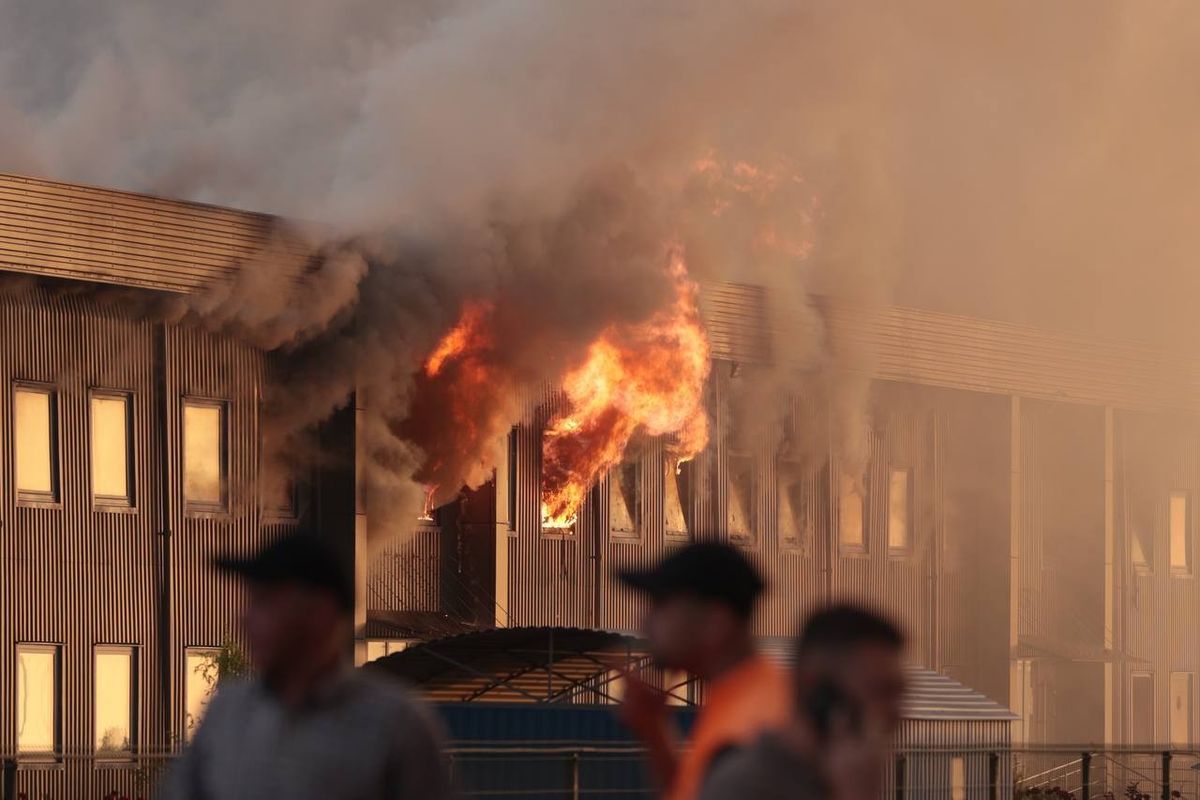President Donald Trump announced Tuesday afternoon that the United States would withdraw from the Iran nuclear deal, or JCPOA, and re-impose harsh sanctions on Iran—including both JCPOA-related sanctions as well as additional economic sanctions.
In response, Iranian President Hassan Rouhani announced his country would abide by the tenants of the deal—for now. Foreign minister Javad Zarif tweeted he will begin negotiating with the remaining JCPOA participants—to include France, Germany, the UK, Russia and China—seeking an outcome that will “ensure [the deal’s] full benefits for Iran…Outcome will determine our response.”
Leaders of the UK, France and Germany have jointly urged Iran to remain in the deal and continue meeting its commitments, however two of the United States’ largest regional allies—Israel and Saudi Arabia—released statements in support of President Trump’s decision to withdraw from the deal. Saudi Arabia says it “supports and welcomes” the move, while Israeli leader Benjamin Netanyahu called the decision “brave.”
We asked members of The Cipher Brief’s expert network for their reactions to Trump’s announcement.
Antony Blinken, former Deputy Secretary of State (under President Barack Obama)
“Blowing up the deal puts us on a collision course with Iran and our closest allies. It gives Iranian hardliners the excuse to speed again toward the bomb without a united international coalition to oppose them or inspectors to expose them. Or if Iran and Europe stick with the deal it forces us to sanction the latter to stop them from doing business with the former. Either way we lose.
“It also makes getting to yes with North Korea that much more challenging. Why would Kim Jung Un believe any commitments president trump makes when he arbitrarily tears up an agreement with which the other party is complying? And President Trump’s attacks on the substance of the Iran deal constitute self- imposed pressure to get a stronger outcome with North Korea.
“Will Trump get Pyongyang to dismantle the vast bulk of its nuclear enterprise up front as Obama did with Iran? Will he able to impose the most intrusive inspections regime ever, again as Obama did with Iran? Not likely.”
Amb. James Jeffrey, former U.S. Ambassador to Iraq and Turkey
"Trump’s Iran decision is a risky choice, but the next steps will determine whether it is a serious mistake. The full U.S. pullout of the JCPOA and reinstitution of U.S. sanctions per se neither dramatically increase economic pressure on Teheran nor slow Iran’s theoretical ability to obtain nuclear weapons. In fact, by ending totally U.S. participation in the agreement, the president opened the door to Iran—as allowed under the JCPOA’s Article 36—pulling out of all or many of the current constraints on its enrichment program. These new U.S. sanctions themselves can little hurt the Iranian economy, as most Iranian activities have remained under U.S. sanctions for other purposes such as counter-terrorism. What brought Iran to an agreement in 2015 was global economic sanctions particularly on Iranian oil exports, but there is no indication that major oil export players such as the Europeans or China will implement US sanctions. Nor does the President’s decision itself impact Iran’s destabilizing behavior around the region.
"Thus, the administration in its follow-up will have to explain how it will exert such global economic pressure on Iran, respond to Iran in Syria and Yemen, and stop it, if no longer constrained by the JCPOA, from moving quickly to amass sufficient highly enriched uranium to make a nuclear weapon.
"Trump’s action signals his intent to do his own, rather than implement former President Barack Obama’s, approach to Iran. Beyond the initial gnashing of teeth from Teheran and Brussels, most global players will see this as a sign of a powerful, self-confident America, which the majority of them will welcome. But that welcome will soon pale if Trump cannot answer the above questions, and if he winds up in a lasting diplomatic dispute with European allies whom we need to help contain not just Iran but Russia and potentially China.
"Finally, what Trump is doing in this dramatic fashion is to challenge Obama’s entire diplomatic legacy—not just on the flagship JCPOA, but the whole Obama concept of resolving international conflicts by compromises with expansionist states."













